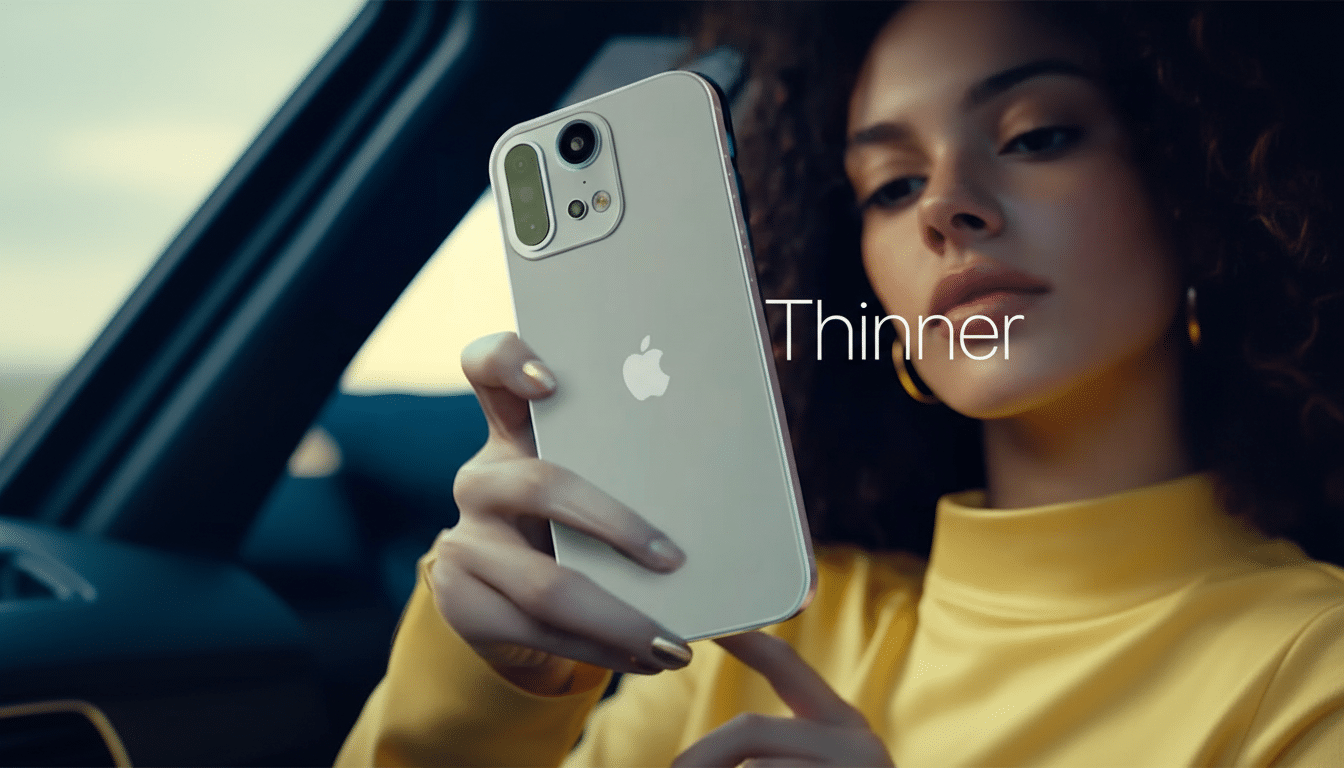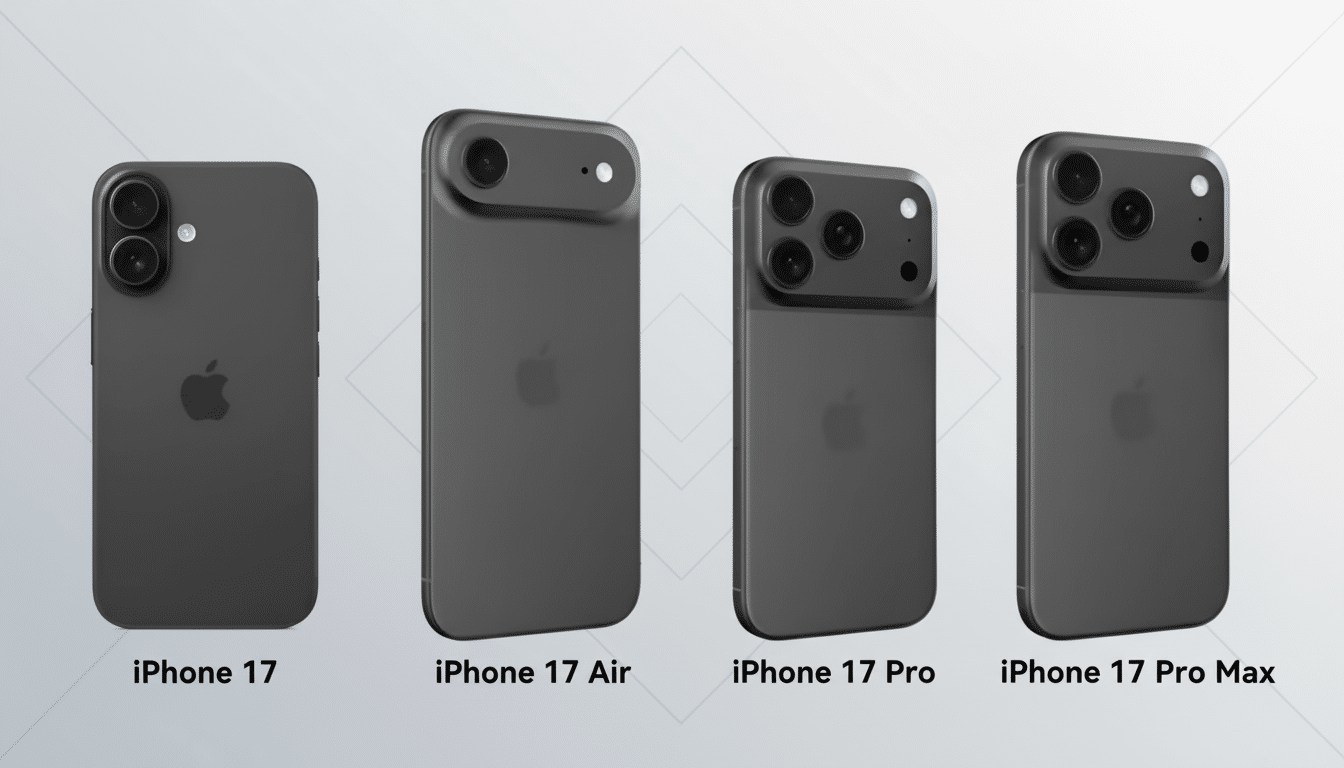Rarely does it make financial sense to upgrade your iPhone every year. The iPhone 16 Pro remains fast, capable and supported for years. But after examining Apple’s claims and where the biggest year-over-year gains actually fall, I’ll be stepping up to the iPhone 17 Pro and some of you should consider it as well.
The goal is not to go after a new color or novelty. It’s whether the 17 Pro changes what is possible to do on a phone. For me, the answer is yes (imaging and endurance).

Cameras: the defining leap
Apple says the iPhone 17 Pro lineup will dispatch its most ambitious camera overhaul yet: three 48MP “Fusion” sensors, which employ an algorithm to combine multiple images into one high-resolution photo — including a new 48MP telephoto, 56% larger than last year’s. The company is also claiming the longest optical reach on an iPhone, with actual focal lengths of 100mm (4x) to 200mm (8x). If true, that’s a meaningful change for travel, concerts, field sports and fly-on-the-wall street photography.
On paper, a bigger telephoto sensor has benefits that go beyond distance; it means cleaner shots in low light, less noise and more usable shutter speeds. That’s the difference between an acceptable gym photo, and a sharp one. Phones including Google’s more recent Pixel have excelled at getting that long-range detail, so it’s interesting to see Apple push hard here. I’ll wait for independent testing from labs like DxOMark or real-world comparisons before calling the race, but it’s clear that there is hardware ambition here.
The front camera is also tended to, with Apple introducing a wider field of view and “Center Stage” framing plus higher resolution up to 18MP. Group selfies, creator pieces to camera and video calls should all benefit. For creators, the idea is a no-brainer: More resolution on each lens equals more room to reframe, cleaner crops, and better-quality ProRAW or video edits without the usual fines you’d expect from using a phone.
Battery life and performance for power users
Apple says the iPhone 17 Pro has its longest-lasting battery yet, with all-day battery life, longer than every other iPhone it ships, thanks to a larger cell in a unibody design on top of iOS 26 power optimizations the new A19 Pro chipset. The headline numbers: up to 33 hours of video playback compared to the 27 you’ll get on the 16 Pro, according to Apple’s internal testing. Translation: if you frequently hammer your phone with navigation, video recording, FaceTime and social apps, you might finish the day with a bit more buffer than battery anxiety.
Performance increases are great, but continued performance is better. And if the A19 Pro and thermal design are able to hold peak speeds longer — say, when you’re exporting 4K clips or batch-editing photos — then it’s time well saved. Apple’s efficiency estimates have been confirmed by third-party reviews like those from AnandTech and Consumer Reports in the past generation after generation, however, so I’m hopeful but will be checking as I use it on an everyday basis.
Design, ergonomics and everyday use
It’s not just stand-on-spec-sheet polish in play here. The camera shelf now runs the width of the phone, mimicking a stability bump offered by Pixel phones; the phone rocks less on a table and is generally easier to steady for long exposures. Grip and visual separation are provided by a new two-tone back, and the headline “Cosmic Orange,” sounds like brushed copper in person — striking but with none of the safety-cone glare. The school of Deep Blue provides a more subtle approach.

Such little ergonomic victories do add up when you’re going rapid fire: a sturdier chassis, some even distribution of weight and a finish resistant to finger grease can be the difference between hitting your shot or not.
Reckon on new cases, those dimples will be gone due to the revised camera layout, so factor in that expense too.
The upgrade math: Cost, trade-in and lifespan
If you should upgrade depends on net cost, not sticker price. The trade-in value for a one-year-old Pro is usually in the mid-hundreds, and carrier bill credits can mitigate some of the damage — especially on multiyear commitments. Market watchers like Counterpoint Research and Consumer Intelligence Research Partners point out that many iPhone owners now own their devices for more than three years, while resale value typically falls off quicker after the second year. At the one-year mark, selling or trading frequently ensures a maximum return.
And, iPhones hold their value better than most Android flagships (a point made often by resale platforms like SellCell). If you’re eyeing the 17 Pro, do some math: Subtract trade-in and incentives many of us get, add in a new case and any storage bump, and compare that total to how often you’ll use camera/battery/performance gains. The return on investment can be compelling if those features directly support how you work, or make what you create that much better.
Who should hold off
If you seldom shoot above 3x, never edit media on-device and your 16 Pro still hangs onto a good-for-another-week 30% by the end of the day, there is no cry to action. Even this model from last year is still a premium phone that has years of software support left. You’ll ride it another cycle for more value, and let initial reviews bear out the 17 Pro’s camera and battery boasts.
For everyone else — especially mobile photographers, creators and habitual travelers — the iPhone 17 Pro seems like a meaningful year, not an incremental one. That is why I’m upgrading: the combination of longer reach, larger sensors and longer runtime changes what I can capture, and how long I can keep going between charges. That’s worth it to me.

